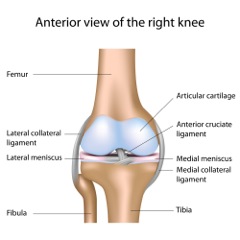 The scientific research, however, isn’t as effusive as the marketing copy on the back of the bottles. Here, we look at the evidence for when these supplements might help — and other pain management strategies to consider.
The scientific research, however, isn’t as effusive as the marketing copy on the back of the bottles. Here, we look at the evidence for when these supplements might help — and other pain management strategies to consider.
Omega-3 Supplements
Research suggests that high doses of fish oil, or other sources of omega-3 fatty acids, may help for one particular type of joint pain: rheumatoid arthritis. But its effect on most other types of joint pain, including osteoarthritis, is unclear.
For example, Consumer Reports cited analysis in The Journal of Pain that looked at 17 randomized controlled clinical trials which concluded that people with rheumatoid arthritis who took 1.7 to 9.6 grams of fish oil a day reported less joint pain, tenderness and stiffness. The investigation also found that people who took more than 2.7 g per day reported a greater improvement in morning stiffness and painful or tender joints than those who took lower doses.
But taking fish oil isn’t risk-free. “Even at doses below three grams per day, fish oil can cause side effects, including upset stomach, diarrhea, and a tendency to burp,” writes Marvin M. Lipman, M.D., Consumer Reports’ chief medical adviser, adding that with every incremental increase in dosage taken “…the more likely [one is] to experience gastrointestinal problems.”
Another sticking point that is often acknowledged but also given short shrift: dietary supplements aren’t regulated by the Food and Drug Administration the same way prescription or over-the-counter medications are — so there’s no guarantee the fish oil listed on the label is what’s actually in the bottle, or that it’s high quality, or even that it’s safe to take. According to the American College of Rheumatology: “Some fish oil supplements may contain high levels of mercury or vitamin A, which could be toxic.”
Glucosamine and Chondroitin Supplements
A 2010 trial of 662 people with knee osteoarthritis published in the Annals of the Rheumatic Diseases did find that these supplements relieved pain for some people — but over time were no more effective than a placebo. More recently, a study of 1,625 people published in the journal Arthritis & Rheumatology in 2015 found that using glucosamine and chondroitin over a four year period did not relieve knee pain or prevent cartilage loss in people with osteoarthritis any better than a placebo. In addition, The American Academy of Orthopaedic Surgeons does not recommend either of these supplements for osteoarthritis of the knee.
Got Knee Pain? What to Do Instead…
One step is to lose weight. Research suggests that for every pound of excess weight you shed, it can take approximately 4 lbs. of pressure off the knees when walking. Additionally, strength training can help build up the muscles that support the affected joint. As well, gentle, low-impact exercise such as swimming and walking can relieve dull knee pain by keeping the joints flexible and lubricated. And, for flare-ups, try over-the-counter anti-inflammatory medications like ibuprofen or naproxen, if your medical provider agrees that this is safe and recommended for you.
If you are experiencing joint pain, we suggest a thorough for proper diagnosis. To schedule an appointment, contact Michigan Spine and Pain online or by calling (800) 586-7992.
